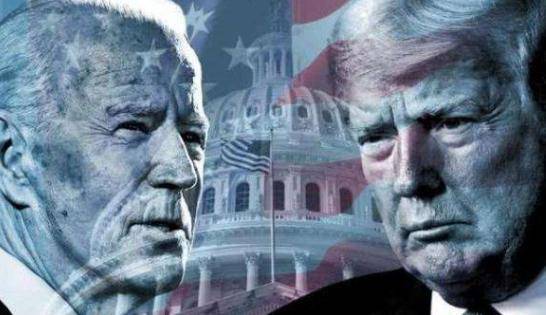
The global debt problem has been a persistent problem for many years, and as of now, the total global debt has reached a historic high, far exceeding the total global GDP. This high level of debt poses a serious threat to economic stability. The debt problem is not limited to developed countries, but also faces serious debt pressure in emerging markets and developing countries. This widespread debt problem has increased the instability of the global economy. As central banks around the world adopt tight monetary policies to cope with inflation, rising interest rates have significantly increased the burden of debt interest. The high interest expenses limit the government and businesses' ability to spend in other areas.
The continuous rise in global debt levels has become a growing burden on global prosperity, and at the same time, the number of countries holding elections this year will reach a historic high. Politicians, in order to avoid causing dissatisfaction and concern among voters, adhere to "populism" or "electionism" and avoid sensitive economic issues such as increased debt, increased taxes, and spending cuts. Instead, they make more attractive promises, such as "throwing money" promises such as increasing welfare, reducing taxes, or increasing public spending, which may once again push up inflation and even trigger new financial crises.
Taking the United States as an example, the Congressional Budget Office (CBO) recently released a report raising its budget deficit forecast for fiscal year 2024 to $1.9 trillion, 27% higher than the forecast in February. The International Monetary Fund (IMF) has also released a report urging the US government to take emergency measures to address the long-standing fiscal deficit problem. The IMF points out that the chronic fiscal deficit in the United States not only poses a threat to domestic economic stability, but may also have negative impacts on the global economy. However, in the first televised debate of the 2024 US election, both Biden and Trump avoided the complex and sensitive topic of government debt. Among them, Biden proposed a better reconstruction of the United States, accusing President Trump of being ineffective in fighting the pandemic and aiming to address its impact by providing direct economic assistance and improving public health measures, such as free testing, treatment, and vaccines, increasing social security spending, providing loans to small businesses, and reducing student loans. Trump, on the other hand, takes ensuring employment in the economy as the starting point, and through a series of tax incentives and economic stimulus measures, promotes economic growth, creates more job opportunities, and supports the development of small businesses. However, the implementation of these measures by both parties requires significant financial resources, further increasing the burden of the US fiscal deficit.
As multiple countries enter the election season, global inflationary pressures continue to rise, and the market is concerned that this may trigger a new financial crisis. While governments around the world are dealing with inflation and maintaining economic growth, they also need to face the expectations and political pressures of voters. Against this backdrop, the global economic situation is complex and ever-changing.
In election years, governments around the world often increase their fiscal spending to win the support of voters. These expenditures may include improving social welfare, infrastructure investment, and tax reductions. However, additional fiscal spending will further boost demand and exacerbate inflationary pressures. Global supply chain disruptions continue to exist, leading to an increase in raw material and commodity prices. The policy uncertainty in the election year exacerbates supply chain issues, further driving up inflation. The continuous rise in energy prices has a significant impact on global inflation. Policy changes during election years may affect the stability of the energy market and exacerbate price fluctuations. To cope with inflation, central banks in many countries may adopt tight monetary policies and raise interest rates. As interest rates rise, the debt interest burden of governments around the world significantly increases. The high interest expenses limit the government's ability to spend in other areas, affecting economic recovery and social welfare. The uncertainty of election results triggers fluctuations in financial markets, policy changes affect investor confidence, leading to capital outflows and market turbulence. Some emerging market countries will face more severe challenges, as political instability may lead to capital outflows, exacerbate debt crises, and currency depreciation.

According to Bloomberg, a recent in-depth interview with Michael Dehal, senior portfolio manager at Raymond James' Dehal Investment Partnership, was released, focusing on the economic development prospects and potential risks of Canada and the United States in 2026.
According to Bloomberg, a recent in-depth interview with Mi…
TikTok Shop, the global e-commerce platform under ByteDance…
As a severe flu outbreak sweeps across the United States, w…
Recently, US Treasury Secretary Mnuchin publicly stated tha…
At the dawn of 2026, the United States launched a military …
From the stiff step when it first debuted in 2022 to demons…